If you're tired of wasting your food because of freezer burn, then have no fear! We've got your backs with some great tips to prevent freezer burn from happening.
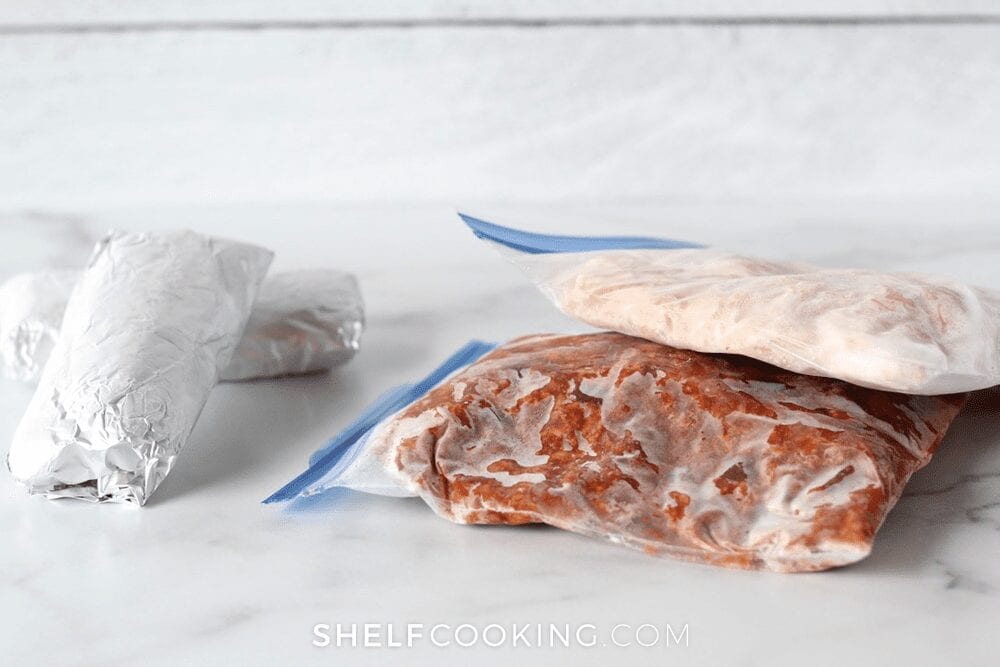
Freezer burn? What? How can something burn if it’s frozen? Oh, it can and it does! And if you’ve ever seen it (or tasted it), then you know it's true.
*Note: When you click the links in this post, we may receive a commission at no extra cost to you.
It's a sad day when you realize the food that you took the time to prepare and freeze now has to be thrown away. *Enter hysterical sobbing.* But don't worry! We've got some great tips on how to keep your food from getting freezer burn so you can stop wasting your food and money. Woot woot!
WHAT IS FREEZER BURN?
Freezer burn is damage to frozen food that’s caused by air (oxidation), dehydration, and water evaporation (which continues after food is frozen unless you do something to stop it). The water that evaporates forms ice crystals in and on the food. We've all seen this before, unfortunately.
Food that has been freezer burned usually has a layer of frost directly on the food and looks “off.” Freezer-burned meat is typically a grayish-white color and looks like it's dry…which it is.
Food that has been freezer burned is safe to eat, but it's not very good at all. Freezer burn changes the flavor, color, and texture of the food, ew!
WAYS TO PREVENT FREEZER BURN
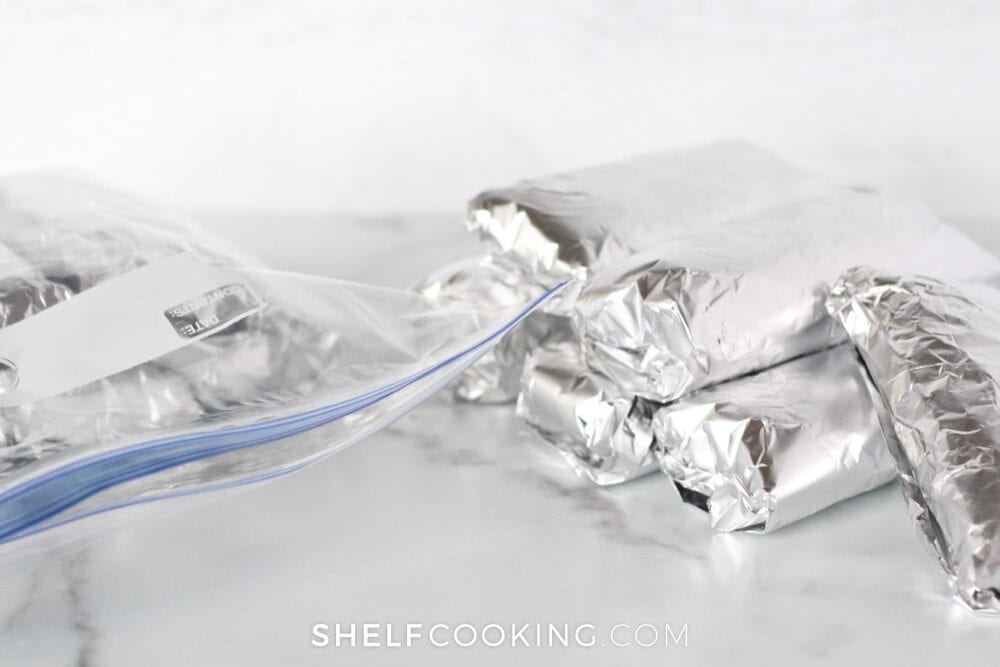
The single most important thing you can do to prevent freezer burn is to provide an airtight, moisture-proof barrier between your food and whatever container it’s in! There are also some other things you can do when, if done consistently, will help prevent freezer burn.
MAKE YOUR FREEZER WORK FOR YOU
- Set the Freezer to the Correct Temperature – This should be obvious, but you’d be surprised how many freezers aren’t quite cold enough! Keep yours at 0°F (-18°Celsius).
- Avoid Self-Defrosting Freezers – Sure, they’re handy. But whoever designed them wasn't thinking about how they would affect the food inside of them while they're defrosting! They defrost by fluctuating the temperature, allowing the frost to melt. When the frost melts, the water molecules in frozen food also melt and start to evaporate. The result? The dreaded freezer burn. Just stay away from them!
- Keep Your Freezer at Least 75% Full – How does this help? Everything stays colder! All of the frozen food keeps the food and the freezer colder (bonus: it also saves on energy!). If the power goes out, as sometimes happens, the stuff in your freezer will stay cold longer if it’s full or almost full. If you don’t have enough food to be able to do that, no worries. Just use ice to fill some of the empty spaces (or fill empty gallon milk jugs with water). However, make sure you don’t stuff the freezer full. There should always be a little bit of room for air circulation around frozen items.
PREVENT FREEZER BURN BY STORING FOOD THE CORRECT WAY
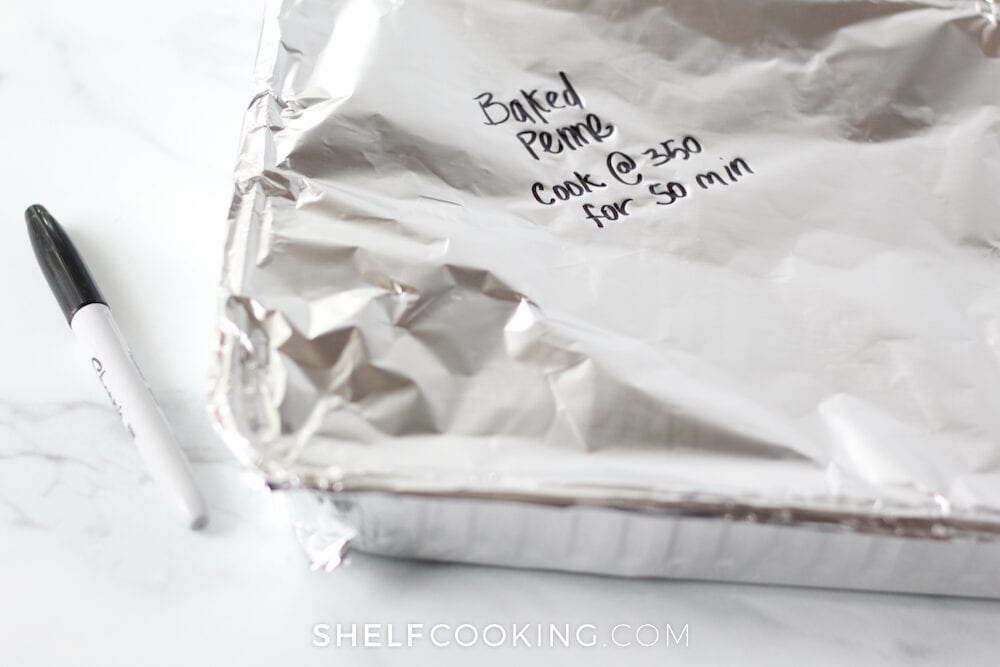
- Cool Food Before Freezing – Not only will you prevent evaporation, but you will avoid partially thawing the foods around it. Cool your food in the fridge for a couple of hours (or overnight) before you put it in the freezer.
- Use Proper Containers – Make sure you use containers that are made to be frozen and wrap your food tightly. Don’t skimp here! Do the research and invest in some high-quality containers that will protect your food. Look for containers that have a moisture-vapor barrier for optimum protection. You should not freeze foods simply in bread wrappers, plastic wrap, food storage bags, or styrofoam trays with plastic wrap. At least not if you want to eat it later! However, you can wrap foods in plastic wrap, foil, or freezer paper before putting them in the appropriate freezer container to add a layer of protection.
- Use the Right Size Container – Whether you're storing your food in rigid containers or freezer bags, make sure they're almost full. Leave just enough room (half an inch or so) for the food to expand a little as it freezes. Make sure you push all the air out of the freezer bag before you seal it. If you use freezer paper, wrap it tightly enough to touch all the surfaces of the food.
- Repack Frozen Foods After You Open – When using store-bought frozen foods (such as veggies, pasta shells, or fish sticks), repack what you don’t eat the first time using all the tips above. Never return these foods to the freezer in their partially empty original bags or containers. Plus, taking them out of their boxes will give you more space in your freezer!
- Freeze Food in Liquid – This works especially well for cooked foods. If any evaporation does occur, it will be from the liquid, not from the food. Simply use an appropriate container and cover the food with broth, sauce, or good old water. Either use the broth or sauce when you reheat it, or drain the water off.
- Triple Wrap Casseroles – You know we're huge fans of doubling what you're making and freezing half for later! When you add your casserole to your aluminum pan, triple wrap it in foil (after it cools, of course) to make sure it's airtight and won't grow any gross ice crystals. Be sure to label it with the contents and baking instructions!
PREVENT FREEZER BURN IN PRODUCE
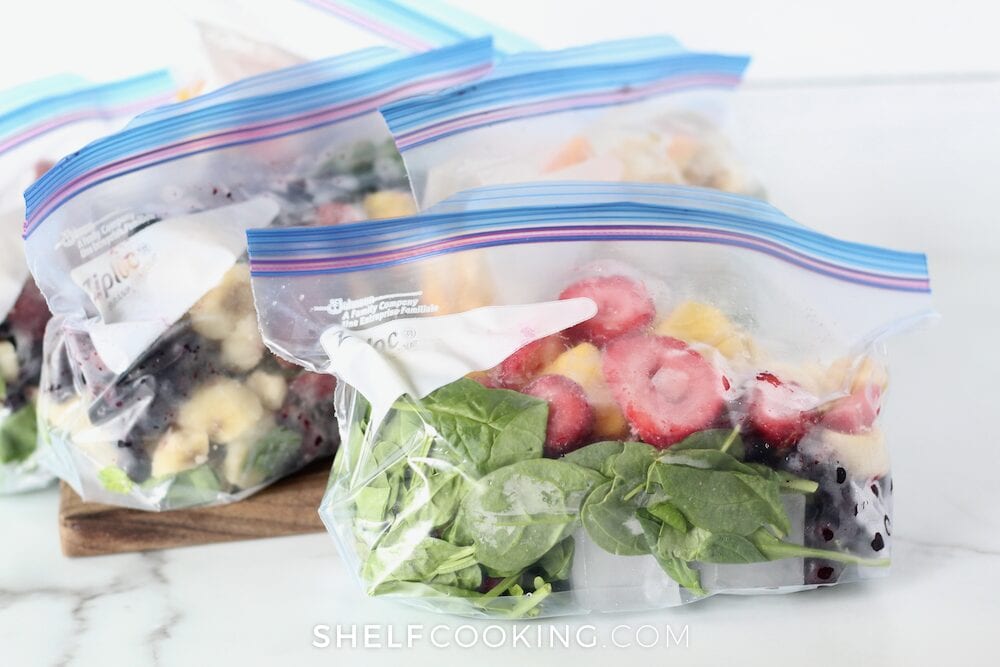
- Add Citric Acid to Fruit – Oxidation in fruit will destroy the nutrients. Prevent freezer burn on fruit by adding a solution that contains citric acid or vitamin C, such as Fruit-Fresh.
- Blanch Green Vegetables – Boil green veggies for 30 seconds, then immediately plunge them in ice water. This helps prevent freezer burn and keeps them from going brown in the freezer. This works for beans, peas, broccoli, asparagus, spinach, and so on.
Pro Tip: Toss your fruit and veggies that are going bad into a frozen smoothie pack! They'll still taste great this way and make a quick and easy breakfast or snack.
KNOW WHEN TO TOSS FREEZER-BURNED FOODS
Hopefully, you’re able to prevent freezer burn and rotate through your food without it going bad. BUT if there’s something that lives in the freezer for too long, toss it. It's not worth you chancing getting everybody sick! As a general rule, nothing should stay in your freezer longer than about nine months, but that magic number can vary with different foods. Make sure you always label and date your food so you know what it is and when you put it in the freezer. Read this post to see how long you can store foods in the fridge or the freezer.
Is there anything you do to prevent freezer burn? Let us know in the comments below!
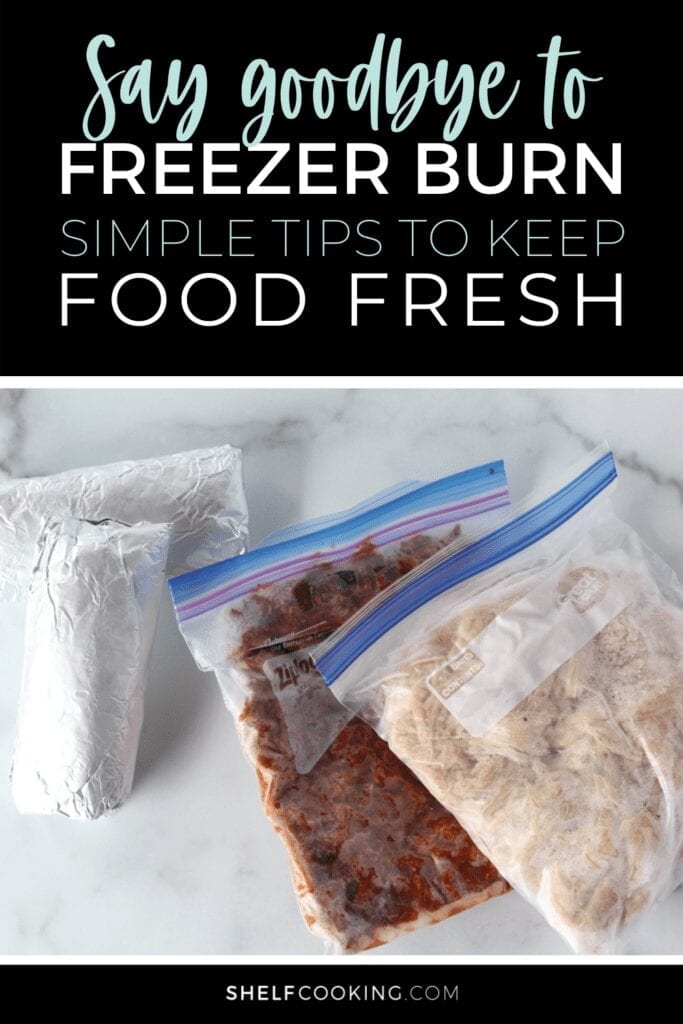
Make sure that you check out these posts!
- Did you know that you can freeze a crazy amount of foods?
- Make sure you know how to thaw your food the safe way!
- These make-ahead breakfast ideas are sure to make your family happy and they're freezer-friendly, too!
Happy freezing!

I love all you ideas, you have made my life so much better. Thank you. You are like the big sister I never had. I love watching your videos, learning from all your wisdom, and enjoy your quirky personality! Thanks to God for blessing you, and Thanks to God for you helping us all.
Awwww thank you for those kind words, that really touched my heart! XOXO
What about The meat? If I were to want to use freezer ziplock bags, would I need to put the meat in something else first? Or put it in the bags and maybe double bag it or foil it on the outside??
A freezer bag will work perfectly fine for your meat! Just make sure you get as much air out as possible when you’re closing it.
Awesome! I’ve loved following your budget and productivity videos. Now you have another website! I’m definitely checking it out! Thanks Jordan P!
We are so glad to have you here, Sarah. We hope you love it and get some ideas for meals that make life easier for you.